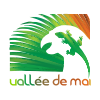JOB PROFILE
JOB TITLE: Senior Field Research Officer
LOCATION: Aldabra Atoll
DURATION: 12 months (renewable)
START DATE: 1st April 2024
SALARY: Subject to qualifications and experience
REPORTING TO: Aldabra science coordinator, RaCE/CEPF coordinator, director of research and conservation
INCLUDED: Transport to and from Aldabra, Food while on field camps (away from main station).
POSITION OVERVIEW:
The role of Senior Field Research Officer is to assist and lead in the development and implementation of ecological monitoring programmes on Aldabra Atoll and ensure monitoring and data collection are conducted to a high standard. The SFRO will co-develop new monitoring protocols for Aldabra, to fill gaps in the current long-term monitoring programme and capture natural variation in species, processes and functions before and after a planned rat and cat eradication (RaCE) on Aldabra.
The SFRO will: liaise regularly with the Aldabra science coordinator and RaCE coordination team on monitoring programme set-up, progress and problems; liaise closely with the Aldabra management team and research staff to ensure excellent communication and integration of new monitoring trials and programmes into the Aldabra workplan; review and synthesise useful information from published and grey literature on relevant monitoring programmes elsewhere; pilot and fully implement new scientifically robust monitoring programmes on Aldabra; develop training materials and train staff in all new monitoring; develop clear, concise and easy-to-follow protocols for each new programme; provide detailed work updates at weekly Aldabra research meetings and regular meetings with the RaCE coordination team; advise the RaCE coordinator of equipment required; ensure detailed record keeping and data entry/cleaning of all monitoring work, including trials that are discontinued or unsuccessful, so all aspects of the work are monitored; submit monthly reports on monitoring programme development progress, updates, and problems to Aldabra science coordinator, RaCE director and RaCE coordinator and CEO; contribute to scientific papers in liaison with RaCE coordination team as appropriate.
Qualifications and EXPERIENCE
- MSc level education in environmental science/conservation (essential)
- At least 2 years fieldwork and ecological monitoring experience (essential) ideally in tropical island ecosystems (desirable).
- At least 6 months experience working in remote or isolated field conditions (essential)
- Demonstrable experience of developing robust and effective monitoring protocols or designing research (for example distance sampling, BACI, species surveys, etc) (essential)
- Experience managing datasets and summarising data for reports (essential)
- Experience with ecological monitoring methods, equipment and maintenance (essential)
- Demonstrable experience writing detailed, concise reports (essential)
SKILLS AND ATTRIBUTES:
- Excellent team work skills and ability to fit within an existing team of mixed nationality
- Excellent verbal and written communication skills
- Ability to conduct comprehensive literature reviews and synthesise information to aid development of scientifically robust monitoring programmes based on best available methods (essential).
- Strong data management, analysis and reporting skills (essential)
- Strong organisational and planning skills (essential)
- Positive, flexible, solution-oriented and proactive mindset (essential)
- Experience of writing or contributing to scientific publications (desirable)
- Excellent physical fitness and strong swimming skills (essential)
- First aid qualifications for remote field work (essential)
- Small tiller boat license (desirable)
- Animal handling skills, e.g. mist-netting, bat/reptile/crab handling (desirable)
- Strong plant, vertebrate and invertebrate identification skills (desirable)
- Scuba-diving skills (desirable)
- Willingness to assist in jobs outside the scope of the work above, that are integral to living at a remote research station (e.g. subsistence fishing, unloading supply boat, organizing or participating in team activities).






